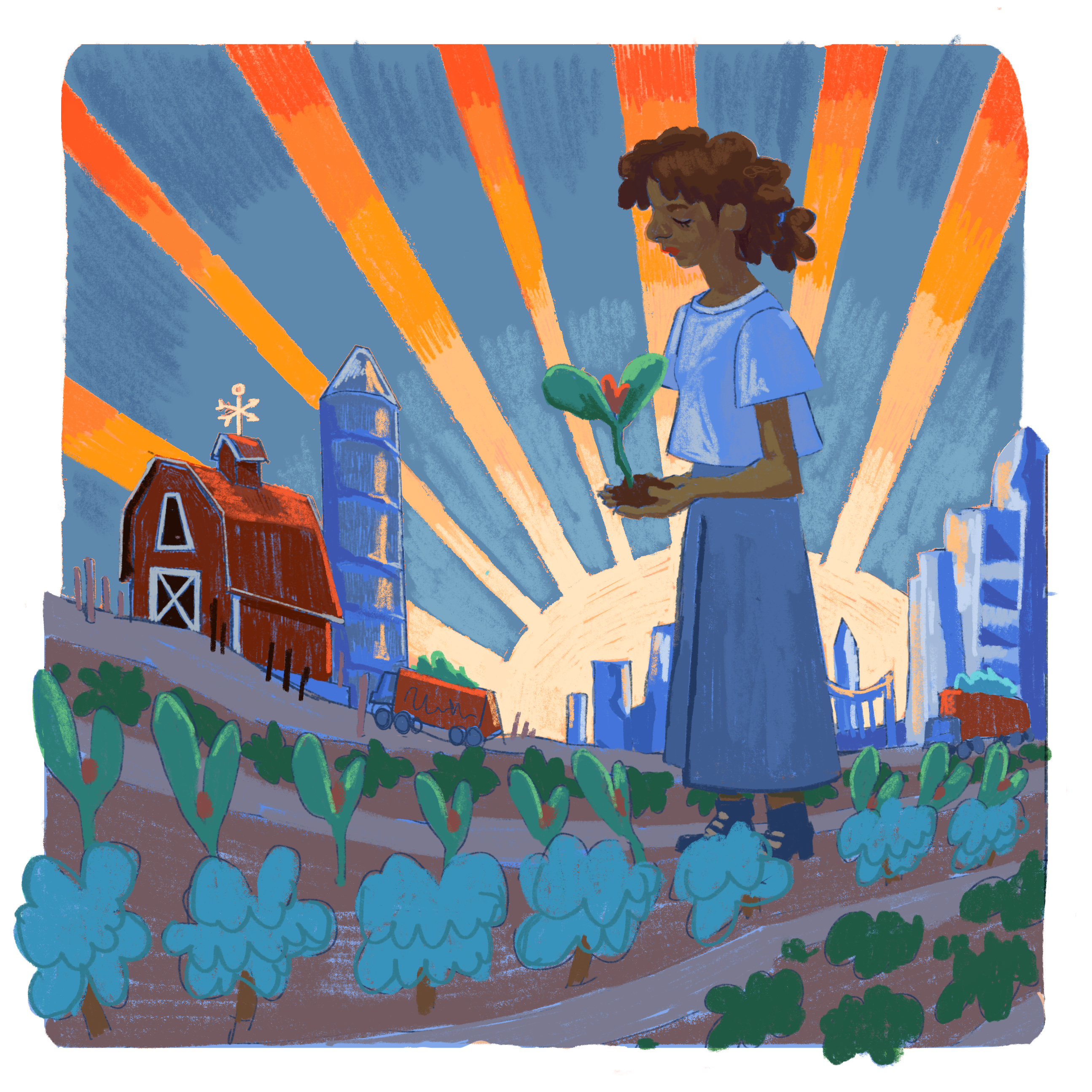In 1967, civil rights activist Fannie Lou Hamer purchased 40 acres of land in the Mississippi Delta. This plot was to be the headquarters of Hamer’s Freedom Farm Cooperative (FFC), a community-based agricultural and economic development project in Sunflower County that sought to support and empower poor Black farmers and sharecroppers. The FFC offered a variety of services to its residents, from affordable housing to scholarships for local Black high school students. Although the cooperative started with only 40 acres, at its peak in 1971 the FFC spanned more than 600 acres and was home to a vibrant community.
The FFC dissolved when Hamer died in March 1977, but not without leaving an impact. Generations of Black farmers and activists followed in Hamer’s footsteps. While agricultural spaces have a long history of exploiting Black labor, Hamer’s FFC is just one example of how these spaces can give rise to a resistance that centers Black farmers, who have long been unsung advocates for food justice and food sovereignty. Hamer saw self-sufficiency as a tool to empower rural Black sharecroppers, tenant farmers, and domestic workers. Today, activists like Hamer show that self-sufficiency is not only important in the fight against food insecurity, but it is also a key strategy in addressing racial inequality in the United States.
While the United States produces more than enough food to feed everyone in the country, food insecurity in the Black community remains a critical issue. Black Americans are disproportionately impacted by food insecurity as a result of historical inequalities and racial discrimination that continues to this day. Trends in Black farmers’ land ownership provide a striking example of this oppression on a large scale. In 1910, Black farmers owned 17 million acres of land. By 1997, this number dropped to 1.5 million acres, a 90 percent decrease compared to a mere 2 percent drop in white farm acreage over the same period. Even as recently as 2020, Black Americans were 3.2 times more likely to experience food insecurity than white Americans.
Black farming cooperatives and agricultural justice initiatives nationwide are making strides to address these issues, in particular with their efforts to promote food sovereignty. Food sovereignty, as defined by the US Food Sovereignty Alliance, is “the right of a people to determine their own policies relative to food and agriculture as opposed to having their food supply subject to market forces.” Organizations like the National Black Food and Justice Alliance (NBFJA), for example, are focused on “developing Black leadership, supporting Black communities, organizing for Black self-determination, and building institutions for Black food sovereignty [and] liberation.” By investing in essential infrastructure to build self-determining food systems and economies, the NBFJA provides Black people with the opportunity to create and maintain their own food sources, insulated from white-dominated power structures that contributed to their food insecurity in the first place.
Similar to the NBFJA, Soul Fire Farm was directly inspired by the FFC. Soul Fire Farm is an Afro-Indigenous-centered community farm committed to uprooting racism and seeding sovereignty in the food system. Over 160,000 people participate in the organization’s food sovereignty programs every year, which include training for Black and brown farmers and reparations and land return initiatives for northeast farmers. Soul Fire Farm seeks to reclaim Black and Indigenous peoples’ collective rights to exercise agency in the food system, just like the FFC did. This right has long been denied to Black people. By divorcing their activism from the US food system and promoting self-sufficiency, Soul Fire Farm is able to prioritize the self-determination of Black people.
NBFJA and Soul Fire Farm are just two examples of the many organizations that demonstrate the power and resiliency of the Black community and the importance of reinforcing their relationship with the land. These initiatives can be seen as reconceptualized models of the FFC, mirroring many of Hamer’s original goals. With enough resources, they are able to support the self-sufficiency and self-determination of Black communities. This is not only a powerful step in the fight against food insecurity, but also in the struggle for racial equality in the United States. In the words of Leah Penniman, the farm manager and founding co-director at Soul Fire Farm: “If we can have our farms, if we are able to can and preserve for the winter, if we own food hubs and food co-ops as a community, that security becomes the basis for freedom.”
